2004 Chevrolet T7500 Brake Rotors and Pads
Click here to search another vehicle
All Rotors:
OEM x
Coated x
Drilled, Slotted and Coated x
Front x
Rear x
All Pads:
Ceramic x
Semi-metallic x
Front x
Rear x
Found 5 record
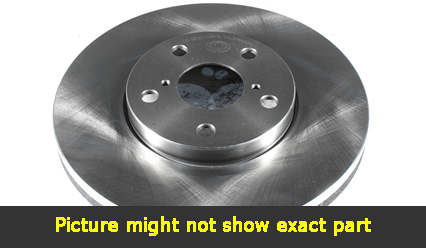
Part No: BR55104
Raybestos: 580263
OE: 88936163
Raybestos: 580263
OE: 88936163
$130.36 each
Per Car QTY: 2
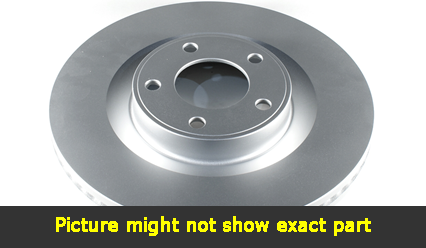
Part No: PP55104
Raybestos: 580263
OE: 88936163
Raybestos: 580263
OE: 88936163
$170.46 each
Per Car QTY: 2
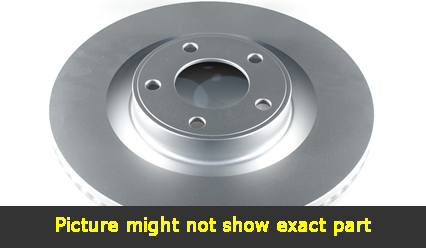
Part No: PP5623
Raybestos: 8545
OE:
Raybestos: 8545
OE:
$216.94 each
Per Car QTY: 2
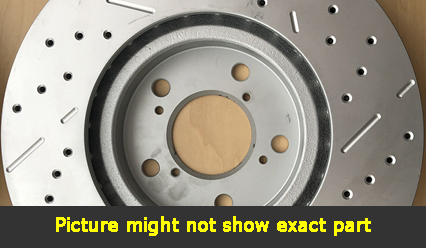
Part No: SP55104L
Raybestos:
OE: 88936163
Raybestos:
OE: 88936163
$210.96 each
Per Car QTY: 1
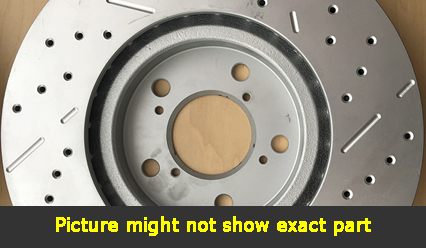
Part No: SP55104R
Raybestos:
OE: 88936163
Raybestos:
OE: 88936163
$210.96 each
Per Car QTY: 1
Brakes are an essential part of any vehicle, responsible for the safe slowing down and stopping of the vehicle when needed. When it comes to the brakes on a 2004 Chevrolet T7500, it's important to understand their components, maintenance requirements, and common issues.
The brake system on a 2004 Chevrolet T7500 consists of several key components, including brake pads, rotors, calipers, brake lines, and the master cylinder. Each part plays a crucial role in ensuring efficient braking performance.
Brake pads are made of friction material that presses against the brake rotors to create the necessary friction for stopping the vehicle. Over time, the brake pads wear down due to this constant friction. It's important to regularly inspect and replace worn brake pads to maintain optimal braking efficiency.
The brake rotors, also known as disc rotors or brake discs, are mounted directly onto the wheel hubs. When the brake pads clamp down on the rotors, it creates the necessary friction force to slow down or stop the vehicle. Like brake pads, rotors can also wear down over time and may need to be resurfaced or replaced if they become too thin or damaged.
Calipers are responsible for applying pressure to the brake pads, ultimately enabling them to clamp down on the rotors. Calipers can become stuck or fail to apply pressure evenly, leading to uneven braking and potential safety issues. Regular inspection and maintenance of the calipers are crucial to ensure proper brake functioning.
Brake lines connect the master cylinder to the calipers and carry brake fluid, which transmits hydraulic pressure to apply the brakes. Over time, these brake lines can corrode or develop leaks, leading to a loss of brake fluid and ultimately brake failure. Regular inspection and replacement of damaged brake lines are essential for maintaining a safe braking system.
The master cylinder is the central component of the braking system. When the driver applies pressure to the brake pedal, it pushes a piston inside the master cylinder, which then sends hydraulic pressure to the brake calipers. A faulty master cylinder can result in a spongy or unresponsive brake pedal and should be addressed immediately to prevent brake failure.
When it comes to maintaining the brakes on a 2004 Chevrolet T7500, regular inspections and servicing are crucial. It is recommended to follow the manufacturer's maintenance schedule and have the brake pads, rotors, calipers, and brake lines inspected and serviced as needed.
Common brake issues that owners of a 2004 Chevrolet T7500 may encounter include squeaking or grinding noises when braking, a soft or spongy brake pedal, vibration when braking, or a warning light on the dashboard indicating a brake system issue. Any of these signs should not be ignored and should be addressed promptly by a qualified mechanic.
In conclusion, brakes are a vital component of any vehicle, including the 2004 Chevrolet T7500. Regular inspection, maintenance, and addressing any brake issues promptly are crucial for ensuring the safety and optimal performance of the braking system.
The brake system on a 2004 Chevrolet T7500 consists of several key components, including brake pads, rotors, calipers, brake lines, and the master cylinder. Each part plays a crucial role in ensuring efficient braking performance.
Brake pads are made of friction material that presses against the brake rotors to create the necessary friction for stopping the vehicle. Over time, the brake pads wear down due to this constant friction. It's important to regularly inspect and replace worn brake pads to maintain optimal braking efficiency.
The brake rotors, also known as disc rotors or brake discs, are mounted directly onto the wheel hubs. When the brake pads clamp down on the rotors, it creates the necessary friction force to slow down or stop the vehicle. Like brake pads, rotors can also wear down over time and may need to be resurfaced or replaced if they become too thin or damaged.
Calipers are responsible for applying pressure to the brake pads, ultimately enabling them to clamp down on the rotors. Calipers can become stuck or fail to apply pressure evenly, leading to uneven braking and potential safety issues. Regular inspection and maintenance of the calipers are crucial to ensure proper brake functioning.
Brake lines connect the master cylinder to the calipers and carry brake fluid, which transmits hydraulic pressure to apply the brakes. Over time, these brake lines can corrode or develop leaks, leading to a loss of brake fluid and ultimately brake failure. Regular inspection and replacement of damaged brake lines are essential for maintaining a safe braking system.
The master cylinder is the central component of the braking system. When the driver applies pressure to the brake pedal, it pushes a piston inside the master cylinder, which then sends hydraulic pressure to the brake calipers. A faulty master cylinder can result in a spongy or unresponsive brake pedal and should be addressed immediately to prevent brake failure.
When it comes to maintaining the brakes on a 2004 Chevrolet T7500, regular inspections and servicing are crucial. It is recommended to follow the manufacturer's maintenance schedule and have the brake pads, rotors, calipers, and brake lines inspected and serviced as needed.
Common brake issues that owners of a 2004 Chevrolet T7500 may encounter include squeaking or grinding noises when braking, a soft or spongy brake pedal, vibration when braking, or a warning light on the dashboard indicating a brake system issue. Any of these signs should not be ignored and should be addressed promptly by a qualified mechanic.
In conclusion, brakes are a vital component of any vehicle, including the 2004 Chevrolet T7500. Regular inspection, maintenance, and addressing any brake issues promptly are crucial for ensuring the safety and optimal performance of the braking system.


